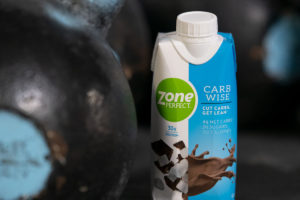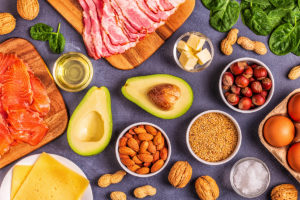Low-Carb
Carbs and Dieting Research
Low-carb diets continue to be widely promoted as a superior, but the evidence suggests you can still drop some weight with carbs and dieting.
The Glycemic Index and Weight Loss
A review of more than 2 million people found no differences in body mass index between those with high- versus low-glycemic index diets.
Keto Diet for Athletes
To suss out the keto diet for athletes, researchers reviewed a studies involving endurance athletes from various disciplines.
The Ketogenic Flu
The ketogenic diet, which is heavy in fat and skimpy on carbs, has become a popular eating method for weight loss, but it can also leave people feeling ill.
How Keto Performs for Strength-Trained Women
Research found that following the keto diet helped strength-trained women ages 23–31 to drop fat mass with no significant loss of fat-free mass.
Low-Fat Vs. Low-Carb Diets for Longer Life
Despite differences in macronutrient composition among diets, specific types of food appear to be the deciding factor in whether an eating style is healthy.
What’s the Word on a Low Carb Lifestyle for Weight Loss?
Which came first? High carb diets or expanding waistlines? Since the birth of the recommendation to reduce fat and increase carbohydrate in the American diet, the incidence of obesity has increased. While much of this uptick in weight is linked to increased portions and total caloric intake, recent survey data suggests that individuals view carbs as the culprit with over a third of individuals voicing their belief that they should be eating fewer carbs.
Weighing In on the Keto Diet
While extremely low-carbohydrate diets like fat-forward keto can aid in short-term weight loss, they have mixed effects on other health markers, according to a scientific statement issued by the National Lipid Association and published in the Journal of Clinical Lipidology.
Will You Get Faster on a Keto Diet?
Many proponents of the ketogenic diet claim that it not only helps with weight loss but also increases exercise endurance by making the body more efficient at burning fat and ketones for energy. However, an investigation by New Zealand researchers, published in Medicine & Science in Sports & Exercise, hints at a different outcome.
What’s the Word on Keto for Weight Loss?
Finally! Gone are the days where fats were a 4-letter word. Research has dispelled the myth that a diet rich in energy-dense butter, marbled meats, and nuts can make you, well, fat. Informed eaters are now seeking out formerly forbidden coconut oil, fatty fish, and ALL the avocados.









